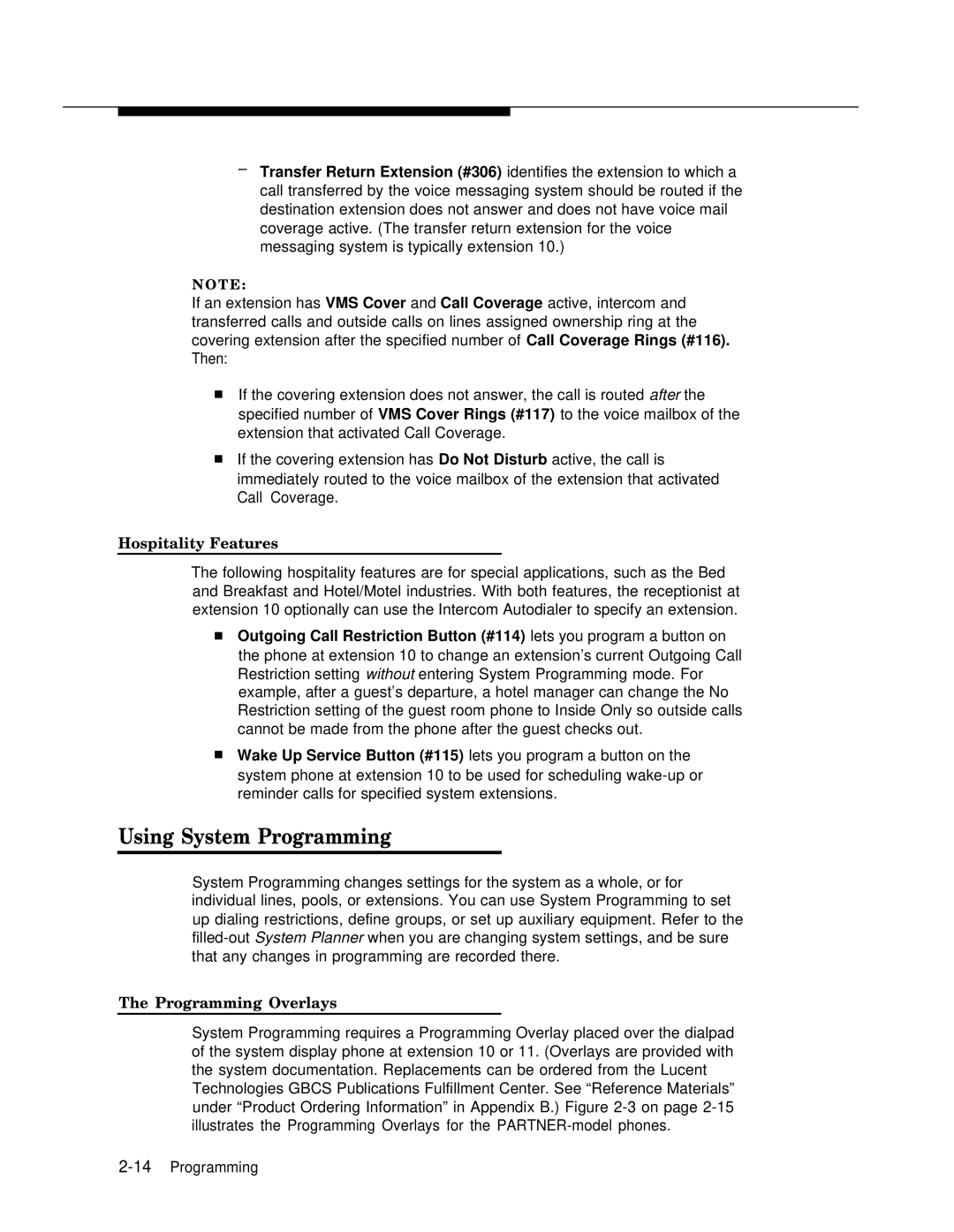
–Transfer Return Extension (#306) identifies the extension to which a call transferred by the voice messaging system should be routed if the destination extension does not answer and does not have voice mail coverage active. (The transfer return extension for the voice messaging system is typically extension 10.)
NOTE:
If an extension has VMS Cover and Call Coverage active, intercom and transferred calls and outside calls on lines assigned ownership ring at the covering extension after the specified number of Call Coverage Rings (#116). Then:
■If the covering extension does not answer, the call is routed after the specified number of VMS Cover Rings (#117) to the voice mailbox of the extension that activated Call Coverage.
■If the covering extension has Do Not Disturb active, the call is immediately routed to the voice mailbox of the extension that activated Call Coverage.
Hospitality Features
The following hospitality features are for special applications, such as the Bed and Breakfast and Hotel/Motel industries. With both features, the receptionist at extension 10 optionally can use the Intercom Autodialer to specify an extension.
■Outgoing Call Restriction Button (#114) lets you program a button on the phone at extension 10 to change an extension’s current Outgoing Call Restriction setting without entering System Programming mode. For example, after a guest’s departure, a hotel manager can change the No Restriction setting of the guest room phone to Inside Only so outside calls cannot be made from the phone after the guest checks out.
■Wake Up Service Button (#115) lets you program a button on the system phone at extension 10 to be used for scheduling
Using System Programming
System Programming changes settings for the system as a whole, or for individual lines, pools, or extensions. You can use System Programming to set up dialing restrictions, define groups, or set up auxiliary equipment. Refer to the
The Programming Overlays
System Programming requires a Programming Overlay placed over the dialpad of the system display phone at extension 10 or 11. (Overlays are provided with the system documentation. Replacements can be ordered from the Lucent Technologies GBCS Publications Fulfillment Center. See “Reference Materials” under “Product Ordering Information” in Appendix B.) Figure
